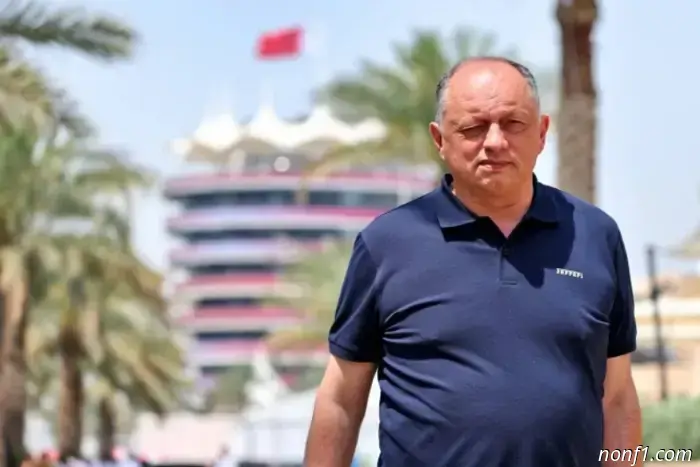
Wasser: Things always happen that are impossible to predict.
In Bahrain, the Ferrari drivers took 4th and 5th places, and although they failed to beat rivals from McLaren and George Russell, driving for Mercedes, the team assures that some progress has been made compared to the first three stages of the season.
Frederic Wasser, the head of the Scuderia, cannot say for sure if there was a chance to achieve better results, but he does not hide his displeasure that the tactics chosen by the team did not work due to the fact that the safety car entered the track at an unfortunate moment for Ferrari.
Frederic Wasser: "I don't know if it was possible to achieve more. When we decided to extend the first leg, we expected that at the end of the race we would have an advantage due to fresher tires. Our business was going well, but the safety car pulled out, and this did not allow us to gain the advantage we had hoped for.
Before the last leg of the race, everyone found themselves in an equal position again. It is impossible to influence such events, although this is not an excuse.
It is clear that McLaren is one step ahead of everyone, but under certain conditions we can fight for high results. On average, their cars are two to three tenths faster, which is a huge advantage, and we are fighting with Mercedes and Red Bull, which have lost ground somewhat. The situation may change from race to race, but right now it's like this.
I understand the reasons for Lewis Hamilton's frustration, because from training to the second part of qualifying, he did a great job, sometimes ahead of Charles Leclair, sometimes behind him, and then in the final of qualifying, his first lap was canceled, and in the second attempt he made a mistake.
But he did a good race, finishing ahead of Max Verstappen and the others who started ahead of him. But if you start in the ninth or tenth position, then you have to solve difficult tasks."
Ferrari was one of those teams that did not use soft tires; instead, the Scuderia strategists preferred a scheme with two segments on Medium tires and the last one on Hard.
Wasser explained this choice as follows: "We decided to apply a two-segment scheme on Medium in order to decide how to proceed. When you compare the effectiveness of different tactics after the race, the picture turns out to be somewhat different, because during the Grand Prix there are always events that you cannot predict initially.
Mercedes decided to take the risk, and it paid off. It was a very aggressive choice, which was confirmed by George Russell. It also helped that the temperature of the track dropped slightly closer to the finish line. And we were just unlucky both because of the malfunction of the DRS system and because of the safety car. If it wasn't for the safety car, we could have extended the second leg and switched to soft tires at the end of the race. But when there were more than twenty laps left before the finish, it was too risky.
But as it turned out, so it turned out. As for the technical innovations, we must moderate our expectations related to the upgraded bottom of the SF-25. We are talking about an increase of just a few hundredths of a second.
In Bahrain, a lot depended on the degradation of rubber, but next weekend the picture will be different. There is little degradation on the Jeddah track, where you can drive at least ten laps on the same set of soft tires in qualifying.
Last year, we saw that when a safety car came onto the track at the beginning of the race, we switched to Medium tires and rode them to the finish line."
Other articles
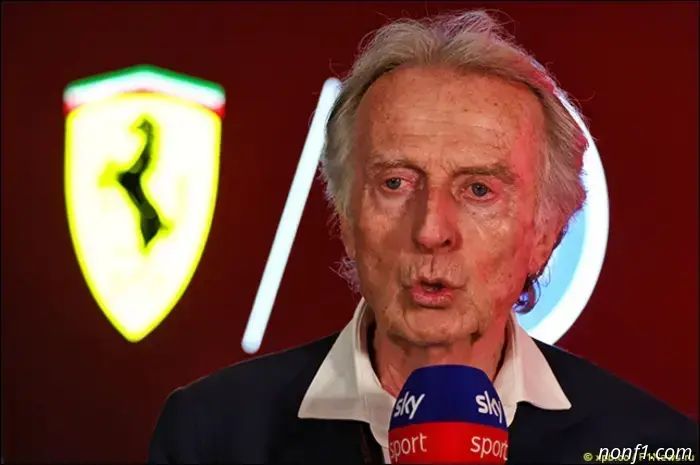 Montezemolo: Today's Ferrari lacks a leader
Former Ferrari president Luca di Montezemolo visited the Bahrain stage and shared his impressions on Sky Sport F1.…
Montezemolo: Today's Ferrari lacks a leader
Former Ferrari president Luca di Montezemolo visited the Bahrain stage and shared his impressions on Sky Sport F1.…
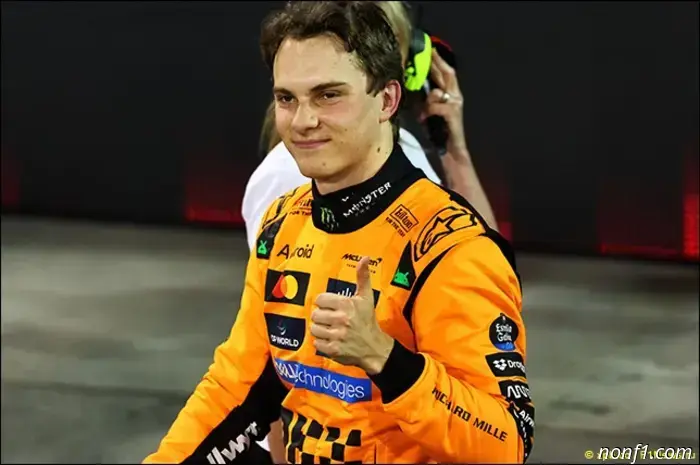 Statistics of the past Grand Prix: Qualification
Statistics of drivers' performances in the qualifiers...
Statistics of the past Grand Prix: Qualification
Statistics of drivers' performances in the qualifiers...
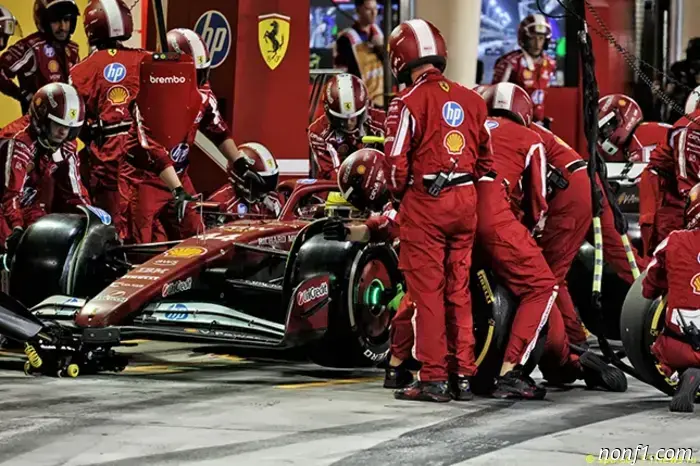 DHL Fastest Pit Stop Award: Best Ferrari Pit Stop
In Bahrain, Ferrari mechanics made the fastest pit stop, servicing Lewis Hamilton's car on lap 32 in 2.16 seconds.
DHL Fastest Pit Stop Award: Best Ferrari Pit Stop
In Bahrain, Ferrari mechanics made the fastest pit stop, servicing Lewis Hamilton's car on lap 32 in 2.16 seconds.
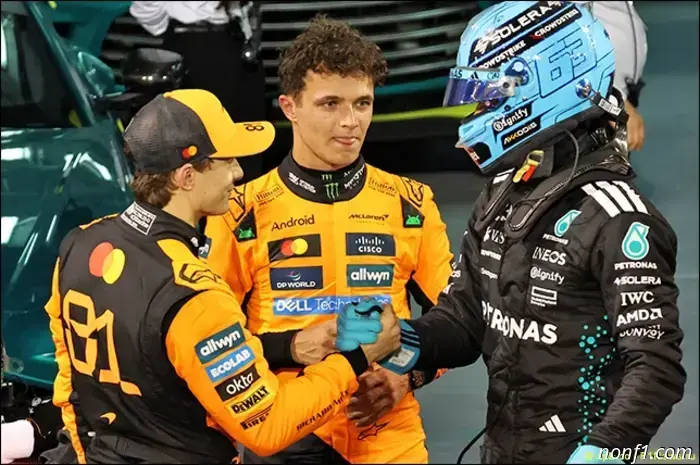 Past Grand Prix statistics: Races and drivers
The statistics of the drivers' performances in the past Grand Prix...
Past Grand Prix statistics: Races and drivers
The statistics of the drivers' performances in the past Grand Prix...
 Vowles: In motorsport, everyone has bad weekends.
The head of Williams Racing admits that the team expected to perform much better in Bahrain, but the events of last weekend developed in such a way that these hopes did not come true...
Vowles: In motorsport, everyone has bad weekends.
The head of Williams Racing admits that the team expected to perform much better in Bahrain, but the events of last weekend developed in such a way that these hopes did not come true...
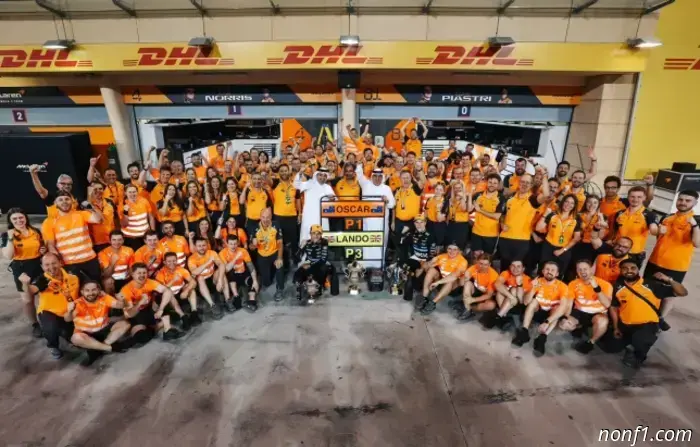 Zach Brown: There will be more intense fights between Oscar and Lando
The McLaren Racing executive director is ready for a major rivalry between his two drivers...
Zach Brown: There will be more intense fights between Oscar and Lando
The McLaren Racing executive director is ready for a major rivalry between his two drivers...
Wasser: Things always happen that are impossible to predict.
Frederic Wasser does not hide his displeasure that the tactics chosen by Ferrari did not work due to the fact that the safety car entered the track at the wrong moment...
